On July 25, 2022, the practice team of QMES, NPU went to Xinjiang Academy of Environmental Protection Sciences of Xinjiang Uygur Autonomous Region to hold a discussion so as to deeply understand Xi Jinping Thought on Ecological Civilization, explore the current situation and future development plan of ecological civilization construction and ecological environmental protection in Xinjiang Uygur Autonomous Region. The team also visited the the State Environmental Protection Scientific Observation and Research Station for Junggar Desert-Oasis Ecotone to learn more about the fruitful achievements made by Xinjiang Academy of Environmental Protection Sciences in the research of arid desert ecological environment protection, and to understand the connotation of “Populus euphratica spirit”——perseverance and persistence that takes root and contributes to the frontier in the new era. Dai Fuping, Secretary of the Party Committee of QMES, and Cheng Yin, Deputy Secretary of the Party Committee of QMES, attended the exchange meeting online.

First of all, Wang Zhihuang, Secretary of the Party Committee and Vice President of Xinjiang Academy of Environmental Protection Sciences, extended a warm welcome to the practice team on behalf of Xinjiang Academy of Environmental Protection Sciences. He introduced the representatives of the academy to the team members, and gave a brief overview of the current situation, work plan and scientific research achievements of Xinjiang Academy of Environmental Protection Sciences. He said that the academy would actively carry out multi cooperation in the field of ecological environmental protection, and contribute to the construction of Xinjiang’s ecological civilization construction by introducing advanced concepts and technologies. At the same time, he affirmed the significance and value of this activity and encouraged students to deeply understand the importance of ecological civilization construction in China’s development agenda, and to deeply explore the state of ecological environment and local customs of Xinjiang to cultivate their patriotism.
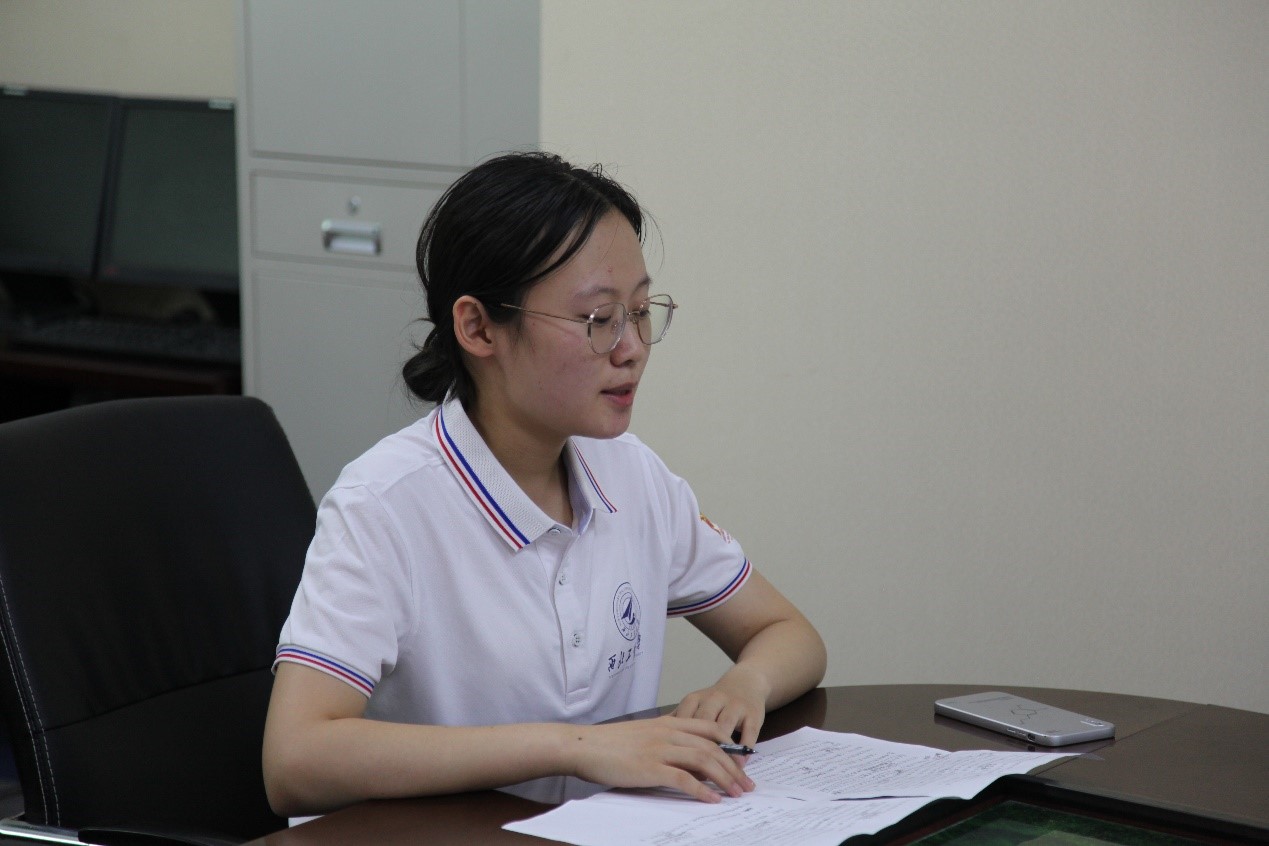
Wang Xinjie, leader of the practice team, delivered a speech on behalf of all the members of the team. She extended her gratitude to Xinjiang Academy of Environmental Protection Sciences for its support. She hoped that she would understand the outstanding achievements of the Xinjiang Autonomous Region in the construction of ecological civilization. She also hoped that students could deeply understand the sharp influence that “Western Development Strategy” of the Central Committee of the Communist Party of China and the strategy of “Coordinating the development and construction with environmental protection” has made on improving the living standards of people in the northwest region of China, understand the connection between ecological civilization construction and national economic development. She hoped that the activity could enhance the sense of responsibility and mission of the youth of the times and encourage them to contribute to the construction of lucid waters and lush mountains.
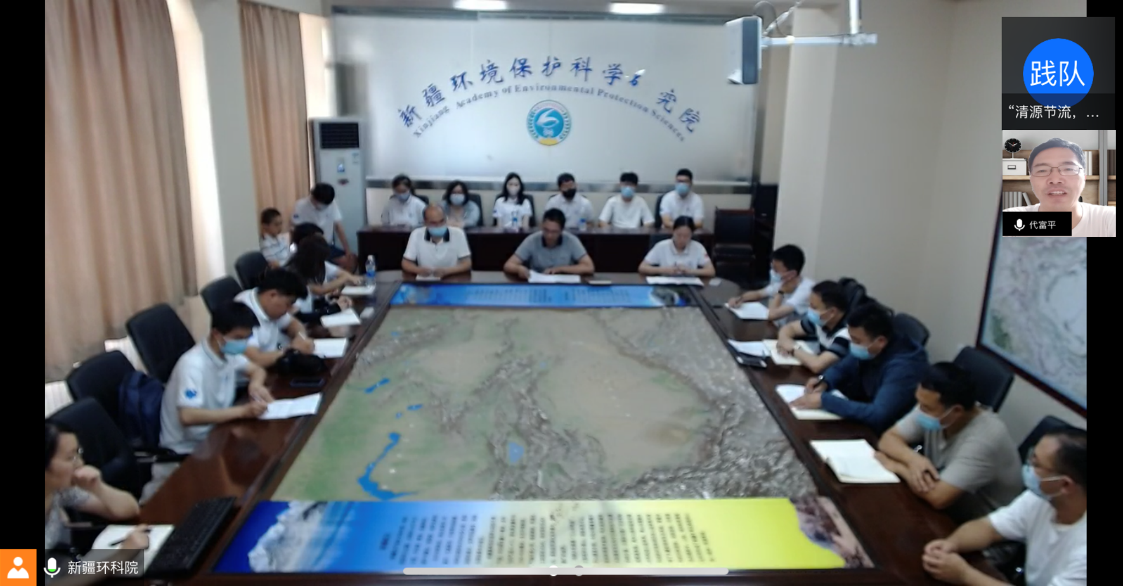
Later, Secretary Dai Fuping gave a speech. He first expressed his sincere thanks to Xinjiang Academy of Environmental Protection Sciences for the warm reception, and briefly introduced NPU and QMES. He emphasized that “focusing on national development and cultivating family and national emotion” is an important concept of talents training in NPU. The social practice would help students apply knowledge to practical activity and continuously deepen their cognitive level. Finally, he hoped that Xinjiang Academy of Environmental Protection Sciences and NPU would strengthen academic exchanges and cooperation, and jointly make positive contributions to the construction of the ecological environment in Xinjiang and the western region.
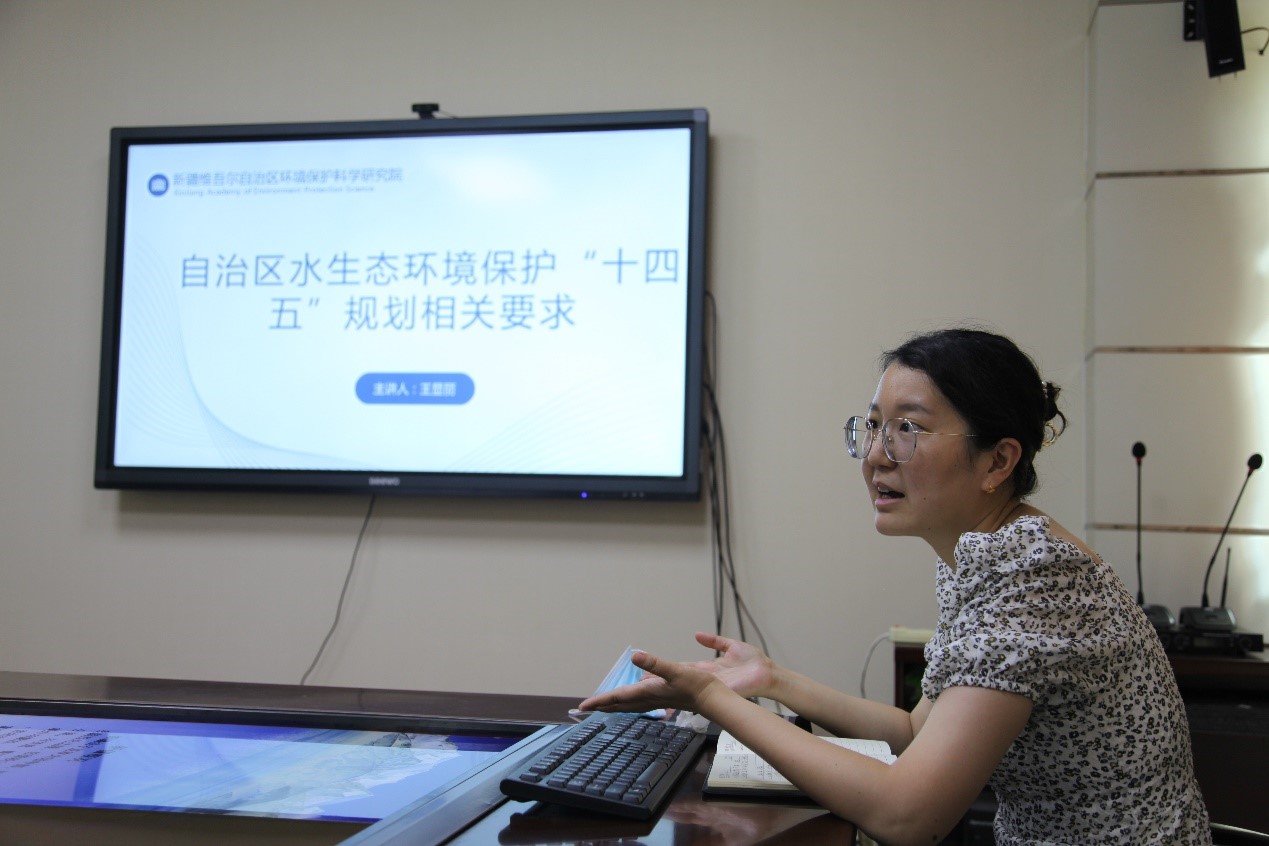
Based on the “14th Five-Year Plan” of ecological environmental protection in Xinjiang Autonomous Region, Dr. Wang Xianli fromXinjiang Academy of Environmental Protection Sciences made a scientific popularization report on water environmentprotection for the practice team. Wang Xianli introduced the prevention and control measures, construction achievements, planning objectives, work tasks and key projects from five aspects. She noted that while some progress has been made in ecological and environmental development in Xinjiang, there are still key problems that need to be solved. She expected Chinese young people in the new era to make a major breakthrough in China’s ecological progress. Finally, Wang Xianli gave detailed answers to students’ questions on water resources development, utilization and protection.
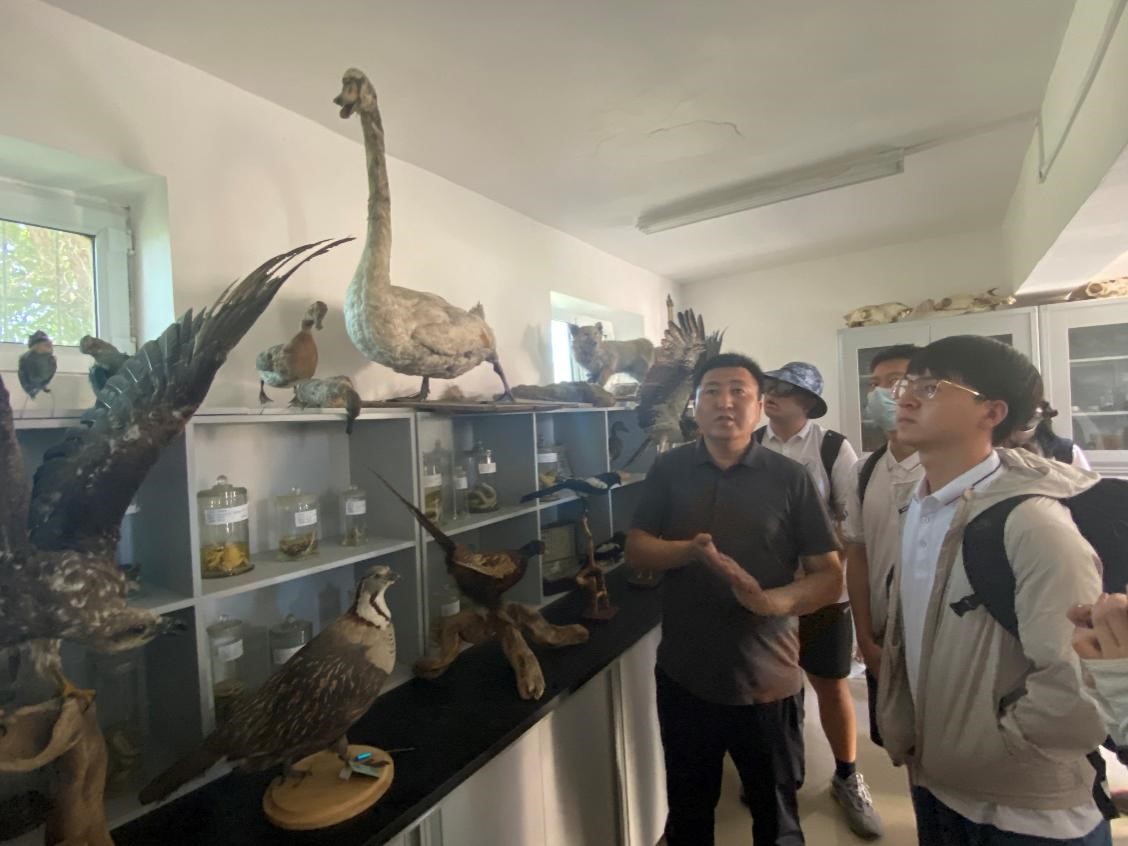
On the afternoon of the same day, led by staff from the Xinjiang Academy of Environmental Protection Sciences, the team visited the State Environmental Protection Scientific Observation and Research Station for Junggar Desert-Oasis Ecotone. The station dedicates to establishing environmental background database and conducting research on ecological environment and biodiversity positioning observation, which gradually facilitates the research on desert ecology, oasis ecology and pollution ecology, and forms multi-scale, comprehensive, long-term and continuous monitoring research fields after nearly 10 years of infrastructure construction and observation research. The ability to simulate and solve interdisciplinary problems provides fundamental support for ecological and environmental management. Adili, head of State Environmental Protection Scientific Observation and Research Station for Junggar Desert-Oasis Ecotone, led the practice team to visit the plant germplasm bank and animal and plant herbarium for remediation of heavy metal pollution of soil. The rich species of animal and plant specimens attracted the students by the biodiversity, fully demonstrating the functions of science popularization and education of the station.
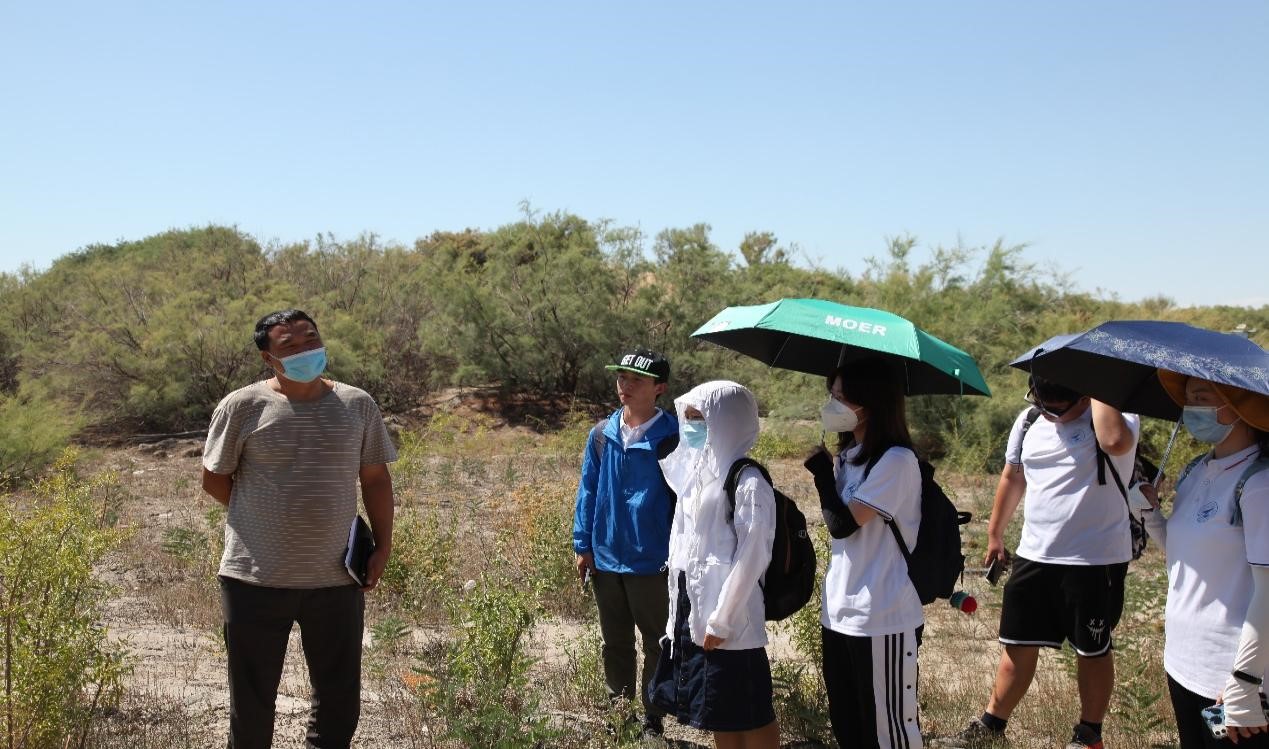
Next, the team visited the ground meteorological automatic observation site and wind erosion observation site respectively. Thanks to the demonstration of the field personnel, the members had a further understanding of the working principle and function of the observation and sampling equipment. “Only desolate desert, no desolate life.” In the harsh environment, the scientific and technological workers ofXinjiang Academy of Environmental Protection Sciences have overcome numerous difficulties, strengthened scientific research and forged ahead, dedicating their youth to the ecological environment construction in Xinjiang in the new era.
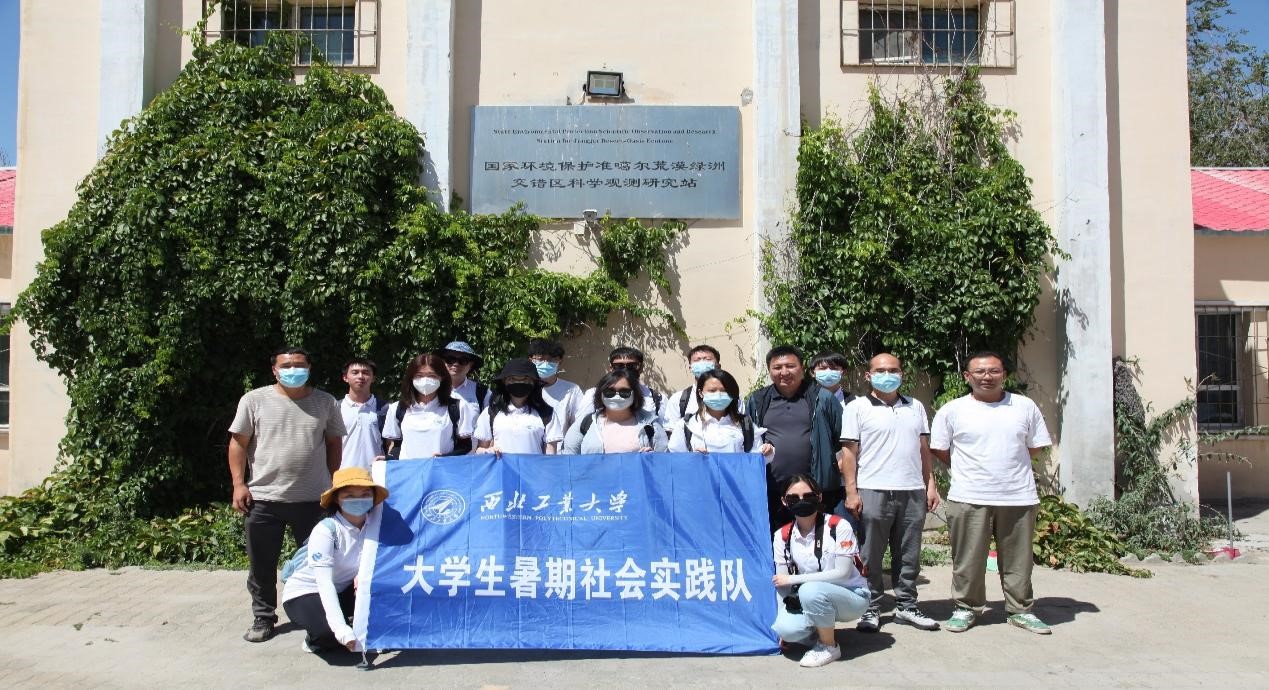
Xinjiang Academy of Environmental Protection Sciences is the only scientific research institution in the autonomous region engaged in basic and applied environmental science research, focusing on ecological and environmental protection, applied technology demonstration and technical consultation, etc. It has made significant contributions to local environmental protection in the fields of comprehensive environmental science, arid ecological environment protection, environmental pollution control and environmental planning. Through the activity, the members benefited greatly and had a profound understanding of the management and construction problems of Xinjiang’s ecological environment. In the future, the staff of the institute will forge ahead with determination, and contribute to Xinjiang’s prosperity, which will also inspire the studentstocontribute their wisdom to the ecological construction of the motherland.
Text: Ye Yaowen
Photo: Shi Zhaoxiaohan
Translators: Li Qianqian, Liu Yang
Review: Cheng Yin

